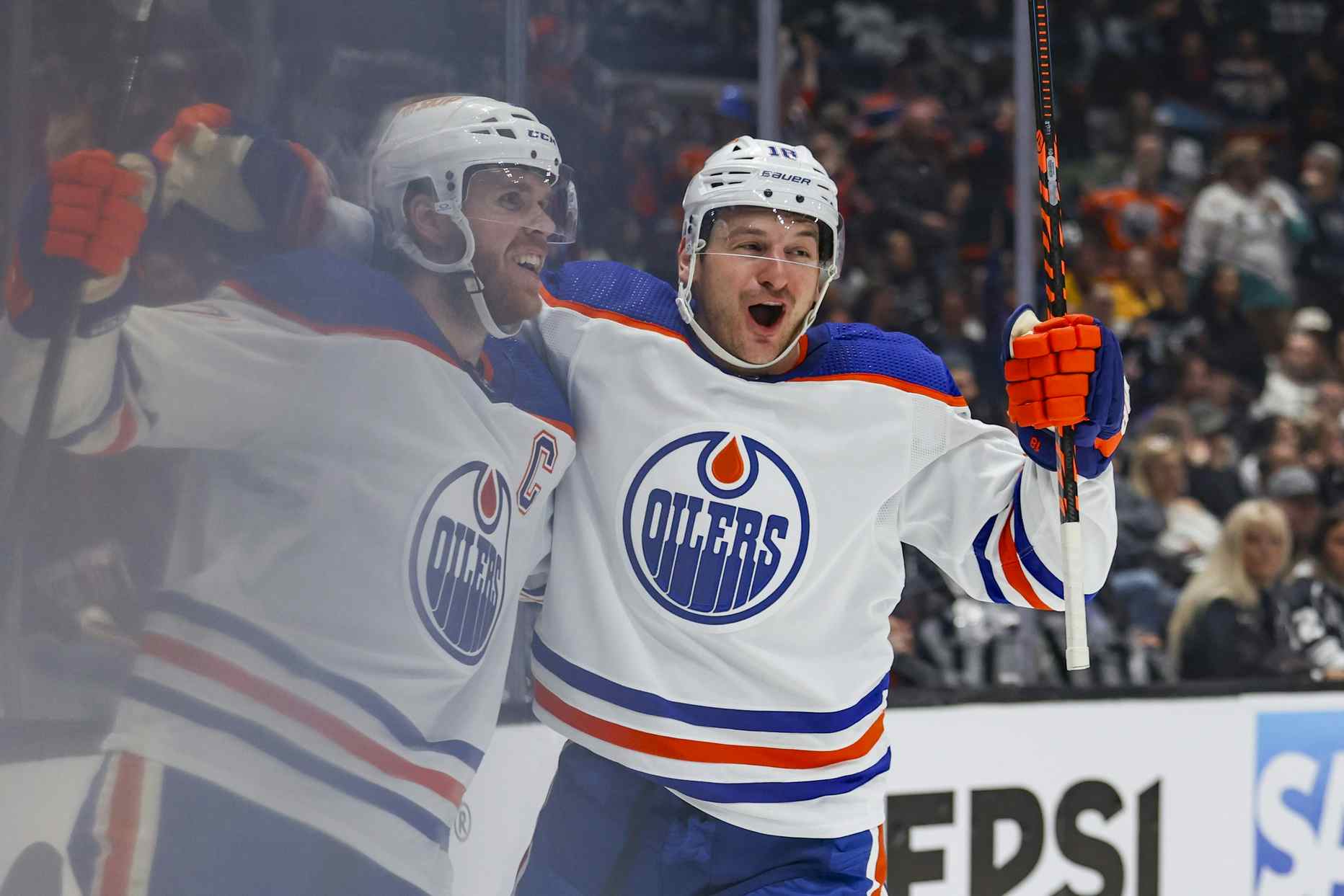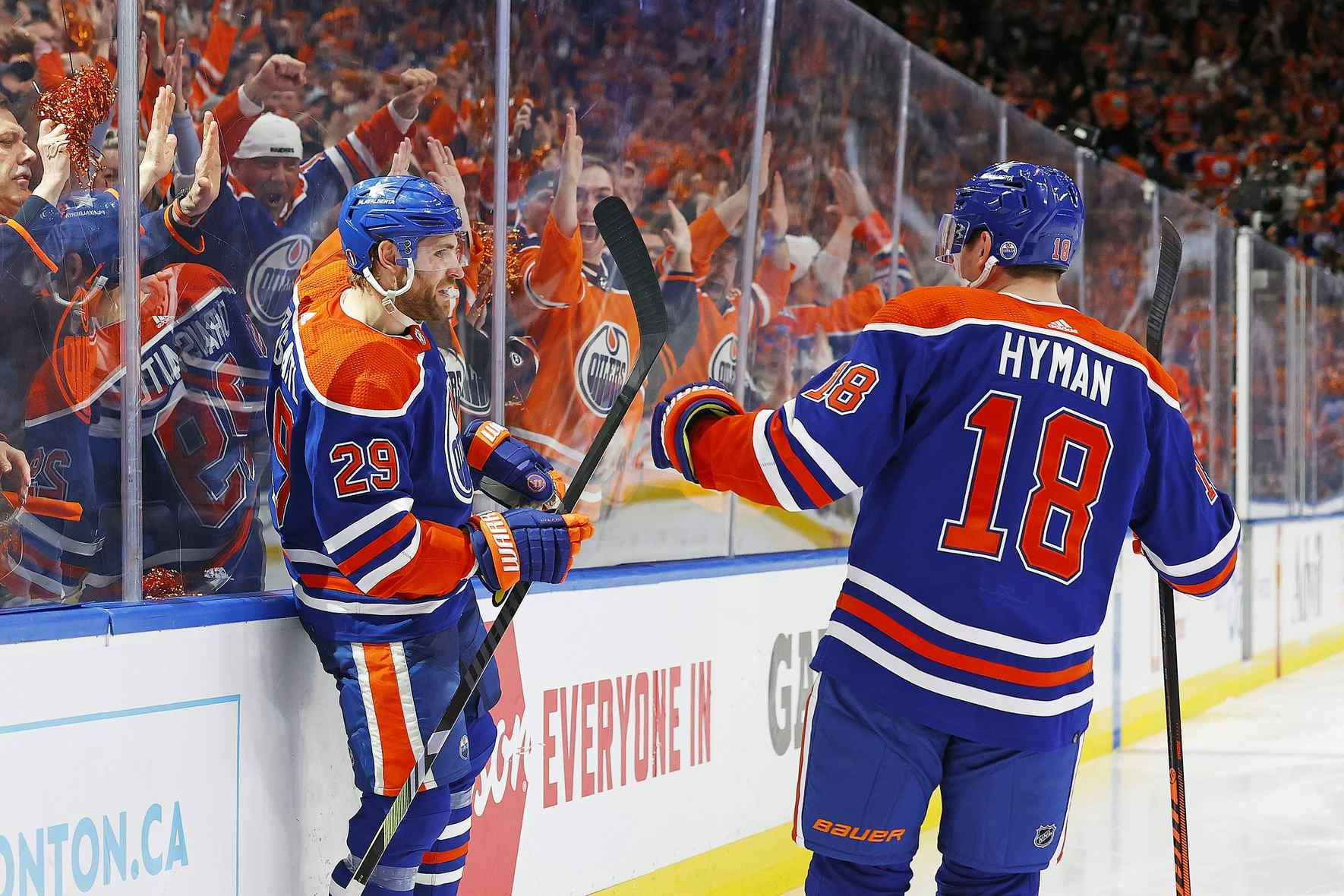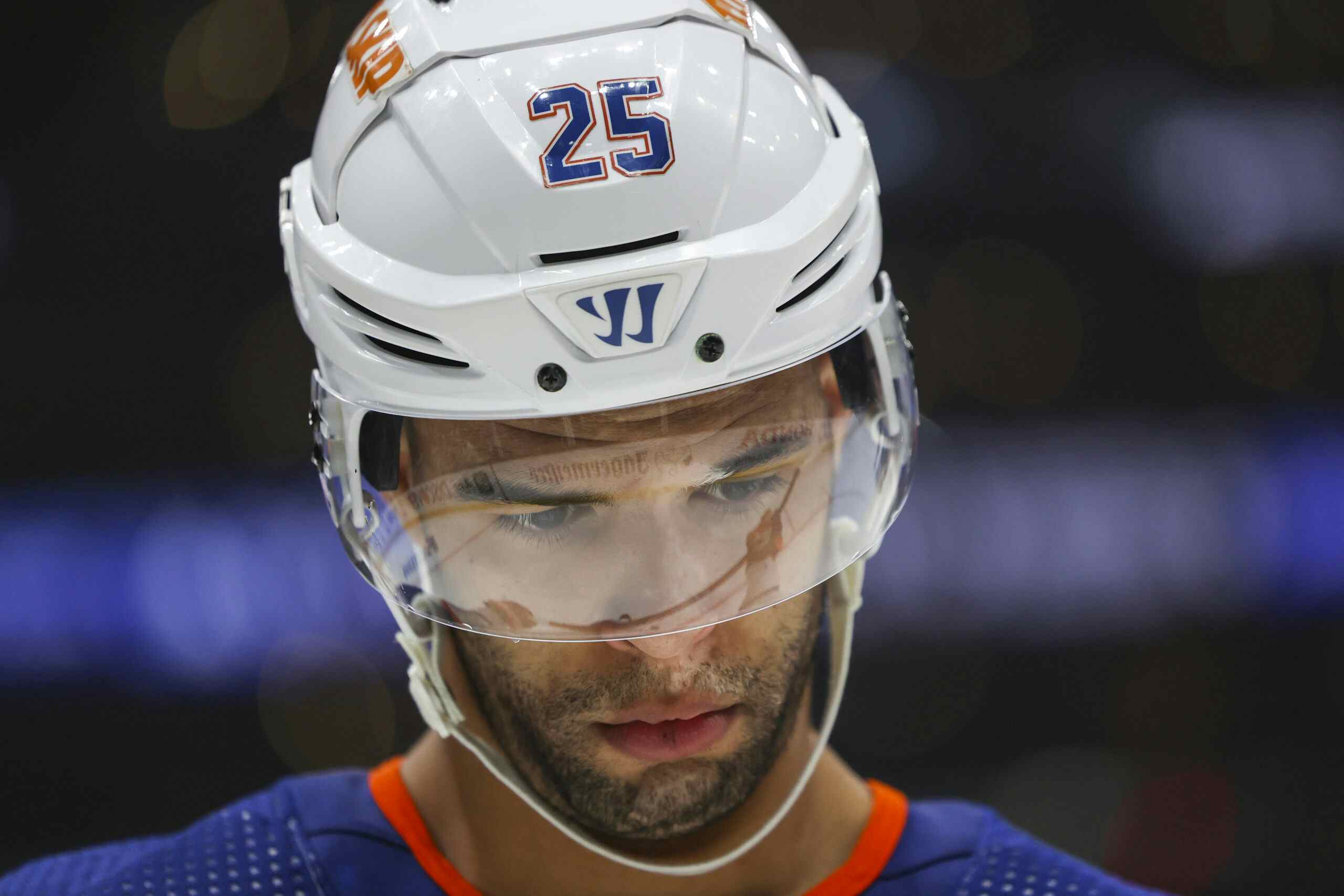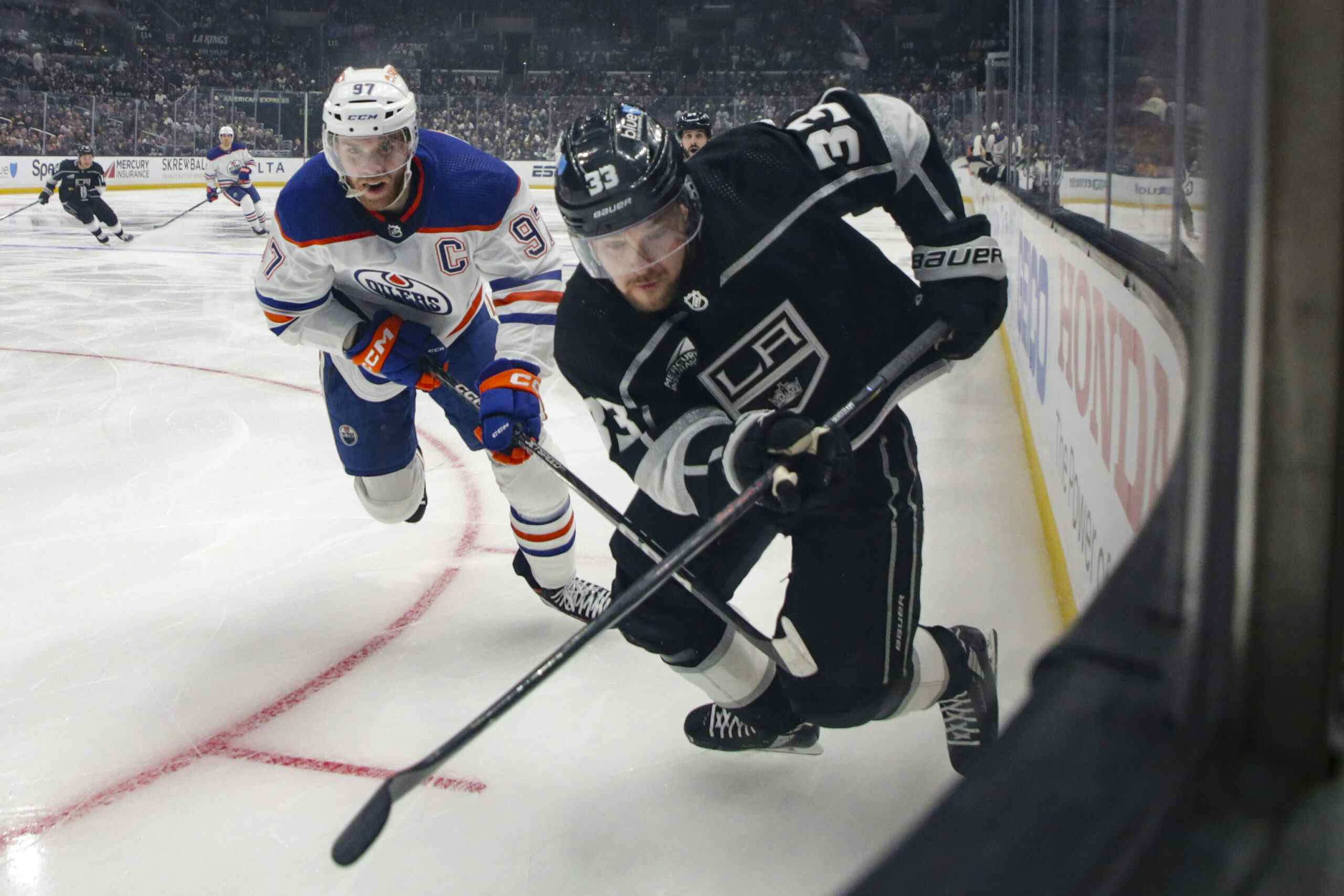Chicago and Pittsburgh and Edmonton

With the Oilers all but eliminated from the post-season – their fourth consecutive regulation loss dropped their chances to 1-in-40 – and the outcome of this campaign nearly in the books, it seemed a good time to compare the progress of the Oilers’ rebuild to successful ones in Pittsburgh and Chicago
A lot goes into building a team beyond selecting early in the draft; these are by necessity abbreviated timelines.
Chicago
- 2005-06: Finished 14th in the West. Drafted Jonathan Toews
- 2006-07: Finished 13th in the West, won draft lottery. Selected Patrick Kane.
- 2007-08: Rookie seasons for Toews and Kane. Chicago finishes in a three-way tie for ninth in the West.
- 2008-09: Second year of Kane/Toews deals. Chicago goes to the Conference Finals. General manager Dale Tallon demoted.
- 2009-10: Final year of Kane/Toews entry-level deals. Chicago wins the Stanley Cup.
- Summer 2010: Entry-level deals of Kane/Toews end; Chicago dumps a bunch of talent and the franchise regresses. Still a power in the West, but has lost in the first round each of the past two seasons.
Thanks to some poor management decisions along the way, new contracts for Kane and Toews triggered a series of trades that saw talent and money sent out of town – significant players like Andrew Ladd, Dustin Byfuglien, Brian Campbell and others would be purged from the roster and it’s taken two years for the team to recover.
Pittsburgh
- 2002-03: Finished 14th in the West. Drafted Marc-Andre Fleury 1st overall.
- 2003-04: First year of Fleury’s entry-level deal. Pittsburgh finishes 15th in the East, drafts Evgeni Malkin second overall.
- 2004-05: Lockout. A year of Fleury’s entry-level deal burned. Pittsburgh wins lottery, drafts Sidney Crosby first overall.
- 2005-06: Final year of Fleury’s entry-level deal, Crosby’s starts. Pittsburgh finishes 15th in the East, drafts Jordan Staal. General manager Craig Patrick replaced. Fleury signs a two-year deal with a $1.295 million cap hit.
- 2006-07: Second year of Crosby’s entry-level deal, first year of Malkin’s, first year of Fleury’s cheap two-year contract. Pittsburgh eliminated in the first round of the playoffs.
- 2007-08: Final year of Crosby’s entry-level deal and Fleury’s cheap two-year contract. Second year of Malkin’s entry-level deal. Pittsburgh eliminated in the Stanley cup Finals.
- 2008-09: Pittsburgh wins the Stanley Cup.
Pittsburgh remains a power in the East, though shaky goaltending and defence has been a problem the last two years in first-round exits.
Edmonton

- 2009-10: Finished 15th in the West. Drafted Taylor Hall first overall.
- 2010-11: First year of Hall’s entry-level deal. Oilers finish 15th in the West, draft Ryan Nugent-Hopkins first overall.
- 2011-12: Second year of Hall’s entry-level deal, first of Nugent-Hopkins’. Oilers finish 14th in the West, draft Nail Yakupov first overall.
- 2013: Present day. Final year of Hall’s entry-level deal, second of Nugent-Hopkins’, first of Yakupov’s.
Where are the Oilers – in terms of on-ice performance – today? Somewhere shy of Chicago in 2007-08, somewhere north of Pittsburgh in 2005-06? Chicago was two seasons out from the Stanley Cup in 2007-08, Pittsburgh two from a finals appearance.
One thing both Pittsburgh and Chicago had in common was that neither paid big money for their key pieces until they’d had some playoff success – Chicago’s top picks were still on entry-level deals when they won the Cup, Crosby and Malkin were both still on entry-level deals when Pittsburgh went to the Finals and Fleury was on a cheap bridge contract. The Oilers, on the other hand, are about to see Taylor Hall (and Jordan Eberle) graduate to the ranks of paid NHL stars.
Another thing Pittsburgh and Chicago had in common around this time was a change at the top. Craig Patrick, owing to the failures of his team, was dismissed around this time. Dale Tallon, owing less to failures of the team and more to salary problems (including that famous RFA incident), had just a year left in the top job at this point in the Chicago timeline. The safety of the Oilers’ management group is an unknown, though nothing in the team’s on-ice performance should make Kevin Lowe, Steve Tambellini and the rest feel comfortable.
As Pittsburgh shows, a lack of playoff hockey at this point doesn’t necessarily mean that the rebuild has failed or will fail – the Penguins recovered nicely in the years following their miserable 2005-06 campaign. Whether similar progression lies in the Oilers’ future remains to be seen.
Recently around the Nation Network
- Canucks Army: On Mason Raymond’s playoff production
- Leafs Nation: Hockey TV and the footage fairy
- Flames Nation: Items of interest!
- Jets Nation: Weekly thoughts
- Gregor: Staying in the race
- Strudwick: Just play
- Willis: Hall of a thing
- Gregor: Are the Oilers improving?
- Lowetide: Confusion
- Wanye: Draft update and the future
- Follow Jonathan Willis on Twitter!
Recent articles from Jonathan Willis





